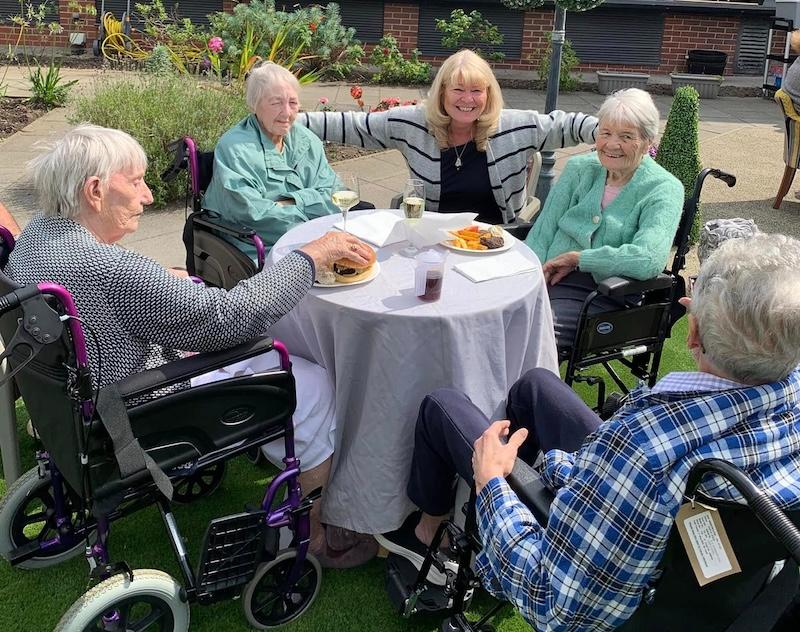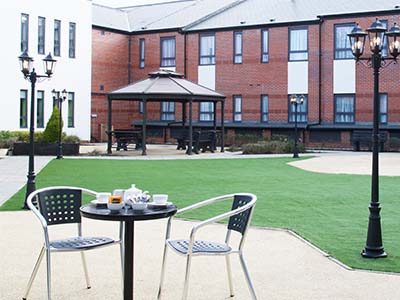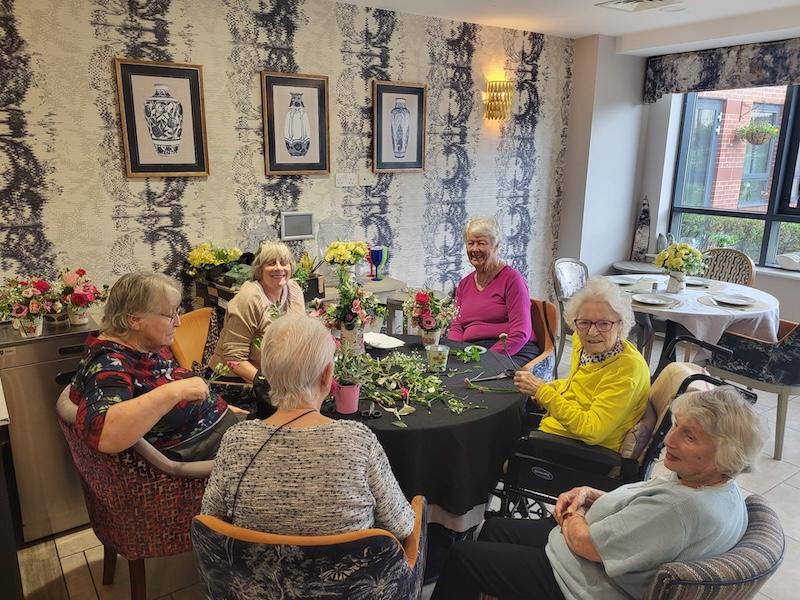Is Residential Care the Same as Assisted Living?

When looking into care options for yourself or a loved one, it is common to come across terms such as residential care and assisted living. At first glance, these two types of support seem very similar as they both offer help with daily routines and personal care. However, there are key differences in the services provided, the level of independence encouraged and the environments themselves. Understanding the differences between these two types of support can help you make a more informed decision about care for you or your loved one.
What is Residential Care?
Residential care is typically provided in a care home and is where residents receive personal care and support while living in a safe, home-like environment. These care homes are designed for those who need additional support with daily activities such as washing, dressing, taking medication and meal preparation. Residents will have their own room, often with en-suite facilities and enjoy communal areas like lounges, dining rooms, cinema rooms and gardens.
Residential homes provide round-the-clock support from trained care staff. The primary focus is on personal care services, emotional well-being and companionship from staff and other residents. Laundry services, housekeeping and regular meals are offered as standard, and a variety of social activities and outings are planned to keep residents socially active. Residential care facilities are regulated by organisations such as the Care Quality Commission to ensure a high standard of support and safety.
What is Assisted Living?
Assisted living offers a balance between independent living and access to support services. Assisted living facilities, also known as senior living communities or homes, are usually made up of self-contained flats or apartments. Residents maintain a degree of independence while care professionals visit and assist with daily tasks such as washing, dressing, cooking meals and managing medication.
Most assisted living housing is built with accessibility in mind, often featuring communal facilities for social gatherings, activities and shared dining spaces. Support staff are on hand to assist, but the resident still manages many aspects of their own life. Assisted living is especially popular with people who wish to live alone, but have support available to request if they need it. Some communities are operated by private companies, while others are managed by a housing association or supported by the local council.


Key Differences Between Residential Care and Assisted Living
Level of Independence
One main difference between assisted living and residential care is the level of independence. Assisted living is designed for residents who can live independently but require some assistance throughout their day. It is almost as if they still have their own home, but the care assistants are close nearby for them to request when they need it. Residential care, on the other hand, provides a higher level of day-to-day assistance. Staff are available within the home 24 hours a day and can offer as much or as little support as residents need with their personal care, routines and activities. A care home would typically be beneficial to those who wish to live in a group environment, while extra care housing would be for those who wish to still live alone.
Accommodation and Environment
Residential care homes typically have private rooms that are personalisable within a larger care facility, with communal areas designed to encourage social contact and well-being. Assisted living homes offer self-contained flats or apartments, allowing residents to personalise their entire living space as they wish. Both environments may provide communal dining areas, lounges, and gardens, but assisted living homes prioritise private accommodation and independence above all else, as care homes will prepare all of your meals for you.
Services Provided
Residential care focuses on providing support for people who need help with tasks such as meal preparation, mobility, personal care, taking medication and laundry services. Support is more hands-on and often includes reminders for daily routines or managing health appointments. Assisted living facilities typically offer a flexible menu of support services. Residents may receive help only with tasks they find challenging and other services like transportation or housekeeping can be accessed as and when it is needed.
Regulation and Funding
Residential care homes in the UK are usually monitored by the Care Quality Commission and, in some cases, residents can receive financial support from the local authority following a care needs assessment. Depending on whether the home is pay-as-you-go or all-inclusive, the services offered will differ, but typical fees cover accommodation, personal care, meals and most daily support. Assisted living facilities follow slightly different regulations depending on whether managed by a local council or a private housing association. Residents may own their property or pay a service charge to cover support services, communal facilities and utility costs such as council tax and energy bills.
Medical and Personal Care
While both types of homes offer varying degrees of personal care support services, residential care homes generally provide a higher level of supervision for those who require more support or whose needs might develop in the future. Assisted living is suited to individuals who are able to manage most aspects of daily life but want reassurance that help is on hand should it be required. Should care needs increase significantly, a resident in assisted living may eventually move into a residential home to receive closer care.


Which One is Best for You or Your Loved One?
Choosing between residential care and assisted living depends on the level of independence desired, care requirements, personal preferences and budget. If safety, daily help with routine activities, structured activities and reassurance from staff are top priorities, a residential care home may be the best fit. It suits those who need regular support and the security of 24-hour care in a homey environment.
Assisted living may be better for those seeking a blend of independence and occasional assistance with daily necessities. Residents who are comfortable in their own flat but sometimes need assistance with specific tasks can thrive in an assisted living community. Residents live in their own space but have the security of support services, making this option ideal for those who want to maintain independence for as long as possible.
The choice may also depend on whether a person requires dementia care, has a long-term condition, or could transition into nursing care in the future. Visiting both residential care homes and assisted living facilities, speaking with support staff, and arranging for a care needs assessment through the local authority or council can provide clarity and support decision-making.
Residential Care at Amberley Care Home
At Amberley Care Home, we know that choosing the right care for yourself or a loved one is a deeply personal decision. Our residential care home provides high-quality care in a comfortable, home-like environment. Each resident enjoys a private en-suite room and access to beautifully maintained communal areas and gardens. Our highly trained support staff are available around the clock to provide personal care, companionship, social activities and all the daily support needed to maintain well-being and independence. Our services also aren't limited to residential care. We provide a continuum of care, meaning that if residents' needs develop, we also have nursing, dementia and palliative care that they can transition into. Residents can enjoy peace of mind that no matter what, they will have a home for life with us at Amberley.
We work in partnership with local health professionals and family members to create personalised care plans that prioritise comfort and individual preferences. From nutritious, freshly prepared meals enjoyed in our central dining room to engaging social activities and outings, we make daily living enriching and fulfilling.
For those exploring the difference between assisted living and residential care, we welcome you to visit, ask questions and experience our warm, supportive atmosphere. Whether you are seeking regular personal care, social opportunities, or simply a sense of community in later life, our experienced team is dedicated to making every resident feel at home.





